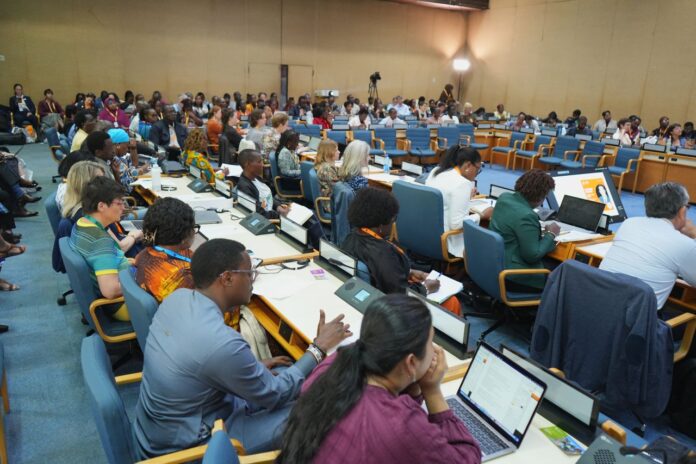|
Getting your Trinity Audio player ready...
|
By Jackson Okata
Nairobi, Kenya: More than 15 low- and middle-income countries, including Kenya, are poised to benefit from a new global initiative aimed at transforming animal and aquatic food systems into sustainable, inclusive, and climate-resilient engines of nutrition and economic growth.
The Sustainable Animal and Aquatic Foods (SAAF) program, launched by CGIAR was unveiled during the CGIAR Science Week in Nairobi.
The six-year initiative (2025–2030) will be rolled out in countries across Africa, Asia Pacific, and Latin America — among them Kenya, Nigeria, Uganda, Ethiopia, Tanzania, Ghana, Zambia, Mali, Bangladesh, Vietnam, and Colombia.
According to Rodrigue Yossa, Interim Director of the SAAF program, the goal is to reach 1.7 million people with innovations that make animal and aquatic food systems healthier, more productive, and better adapted to climate change.
“We want to close productivity gaps, ensure better access to nutrient-dense food, and create resilient livelihoods — especially for youth and women,” Yossa said.
SAAF will focus on six interconnected areas: productivity and innovation; climate and environment; One Health (linking animal, human, and ecosystem health); market systems and policy; gender and social inclusion; and digital solutions to drive data-based decisions.
Yossa emphasized that productivity must go beyond boosting output. “It’s about integrating genetic improvements, better feed systems, and animal health while ensuring the systems are profitable, youth-friendly, and low-emission,” he explained.
CGIAR Managing Executive Director Dr. Ismahane Elouafi called SAAF “a platform for change tailored to local realities.” She noted that the initiative aligns with national food system priorities and seeks to bridge policy, private sector investment, and community efforts.

The program brings together six CGIAR centers, including WorldFish, ILRI, Bioversity International and CIAT, ICARDA, IWMI, and IFPRI, and will prioritize South-South knowledge exchange, capacity building for researchers, and stronger engagement with policymakers and financiers.
Kenya’s Director of Fisheries, Dr. Lucy Obungu, welcomed the initiative but pointed to challenges that must be addressed to unlock its potential. Among them low aquaculture output, high input costs, limited tech adoption, and inadequate data — particularly for small-scale farmers.
“We need demand-driven research and innovation that reaches the grassroots,” she noted.
SAAF aims to provide localized solutions, policy support, and inclusive business models, particularly in pilot countries such as Kenya, Nigeria, Mali, Bangladesh, and Vietnam.
As CGIAR pursues this ambitious agenda, SAAF’s success will hinge on the strength of its partnerships—not only across continents but also at the local level, where food security and climate resilience must begin.














